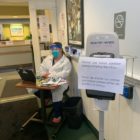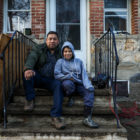Fines & Sanctions
Medical Board Fines Two Doctors $5,000 Each
|
The state Medical Examining Board agreed Tuesday to fine two doctors $5,000 each and issued a cease and desist order to a woman without a Connecticut medical license who performed a procedure that led to an infection. Dr. Bryan Boffi, of Avon, a psychiatrist at the Hospital of Central Connecticut, was fined $5,000 and his license was reprimanded after he issued a patient a prescription for Ativan, a sedative, without consulting with the person’s regular mental health clinician, documents said. Boffi cared for the patient while the person was admitted to HOCC’s psychiatric ward in May of 2016, but failed to talk to the person’s out-patient psychiatrist about the patient’s history or inpatient treatment strategy before prescribing the medication, a consent order said. The state Department of Public Health (DPH) began investigating Boffi after receiving a complaint from the patient’s family, papers said. Boffi has since completed 150 hours of continuing education in the treatment of depression, addiction and the use of Benzodiazepines, such as Ativan, DPH officials said.





